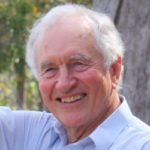Australian election candidates should remind themselves that preparations for war contribute nothing to people’s mental or physical health.
In their letter to the Russian leadership, 90 peace-loving Russian intellectuals write, “war with Ukraine is devoid of legitimacy and has no moral basis”.
In the Australian run up to a federal election, these Russian physicists, sociologists, philosophers, human rights activists, politicians and journalists are also saying to Australian voters, “give peace a chance”. They echo the plea of former senator Margaret Reynolds: “Only vote for candidates who are prepared to voice their commitment to peace and a more independent foreign policy.”
That objective is obstructed by a political culture fascinated with the policies and language of warfare, a culture evident in exhibitions to advertise military hardware, in efforts to make Australia a successful arms exporting country and in the recent massively expensive AUKUS agreement to con the public into thinking that “hunter attack” nuclear submarines will contribute to the country’s security.
Consistent with this militaristic culture, Defence Minister Peter Dutton speaks of Australia’s inevitable involvement in any war over Taiwan. In fear of being depicted as indifferent to the country’s security, the Labor Party avoids sounding like an opposition and instead gives an uncritical thumbs up to an out-of-date alliance with the US and UK. Being wedged means you dare not speak of peace?
The values and language of peace with justice offer a timely, potentially inspiring electoral alternative. The Russian intellectuals are trying to teach and are pleading to be heard. They tell Putin & co — the warmongers’ party — “the cost of conflict is never discussed, but the price, the huge bloody price will be paid by the common Russian people”. They voice their life enhancing commitment, “we stand for peace and prosperity for all Russian citizens, whereas you (the Russian leaders ) put our lives on the line for the sake of political games”.
Not so long ago, Australian politicians used similar language. They advocated foreign policy characterised by commitments to peace, as in advocacy of nuclear non proliferation and support for UN peace keeping. This impressive record needs to be remembered and revived.
Reynolds recalls that 35 years ago Labor prime minister Bob Hawke appointed a minister for disarmament, and parliamentarians argued that foreign policy could reflect “a potential for peace building and social justice”. But in the current warfare-oriented climate, there has been no parliamentary debate about the domestic and international meaning of peace with justice and the benefits of fostering such goals.
Like the lines of a poem or the crescendo of a symphony, visions of peace should be the inspiring antidote to immediate threats to human existence. Yet militaristic policies and the associated language of violence deflect attention from these threats. In cues given by the Russian intellectuals, Australian voters may wish to imagine “peace and prosperity”. They should be able to ask what nuclear submarines have to do with persistent pandemics, with climate change catastrophes, rising authoritarianism, with the displacement of millions of refugees and the violence guaranteed by massive social and economic inequalities.
In every walk of life, the values and language of peace with justice speak of commitment to universal human rights, to the ideals of a common humanity, to the philosophy, language and practice of non violence. Such vision is written into Article One of the UN Charter.
To give peace a chance, Australian candidates competing for office should remind themselves that the violence virus is already global and spreading, that preparations for war contribute nothing to people’s mental or physical health.
Yet in the reservoirs of peace with justice, infinite ideas are waiting to be rediscovered, expressed and promoted. It’s not difficult.
The Russian intellectuals have protested against familiar voices for war.
The German poet Bertolt Brecht taught that justice as the means of peace is the bread of the people, :that just as daily bread is necessary, so is daily justice”.
The English philosopher and nuclear disarmament campaigner Bertrand Russell advised his colleagues: “Wars don’t decide who’s right. They only decide who’s left.”
To give peace a chance, Russell stuck to his lifelong principle, “remember humanity and forget the rest”.
Stuart Rees AM is Professor Emeritus at the University of Sydney & recipient of the Jerusalem (Al Quds) Peace Prize.

